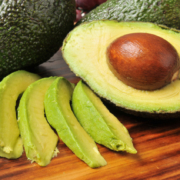The Mediterranean Diet and Stroke Risk
As American Heart Month continues, let’s take a look at a recently published study on the Mediterranean diet and stroke (1); this study fits in nicely with Go Red campaign as well because it contained over 130,000 women educators who are part of the California Teachers Study. The study has followed these women since 1995, and over 300 articles have been published from data collected in this study.
Before I get into the nuts and bolts of the study, I want to make sure you understand what a stroke is: an interruption in blood flow to the area . . .
We're sorry, but this content is available to Members and Insiders only.
If you're already a DrChet.com Member or Insider, click on the Membership Login link on the top menu. Members may upgrade to Insider by going to the Store and clicking Membership; your membership fee will be prorated automatically.











